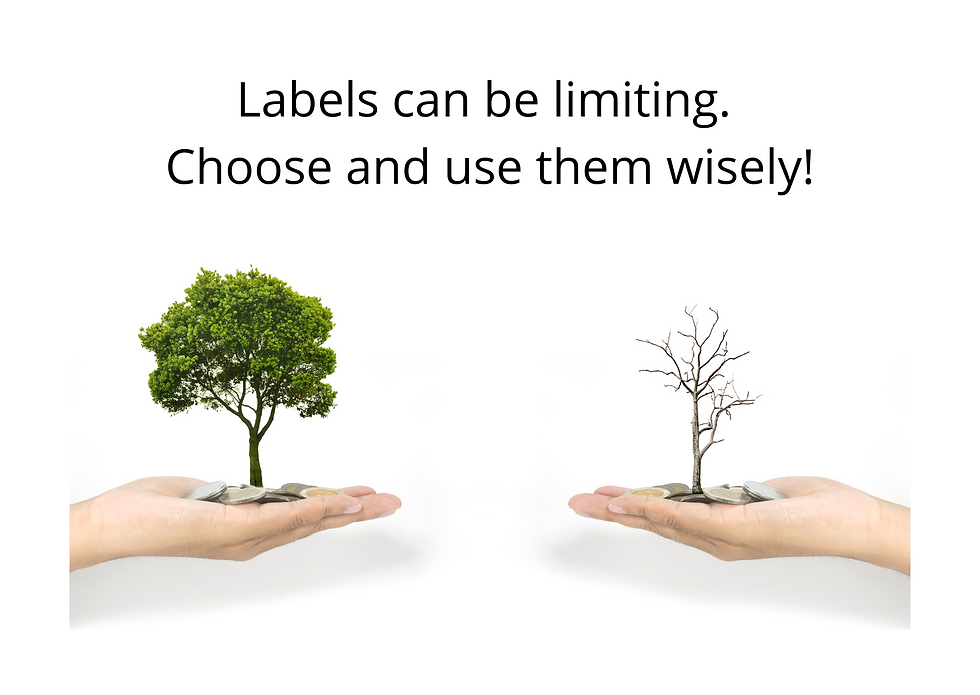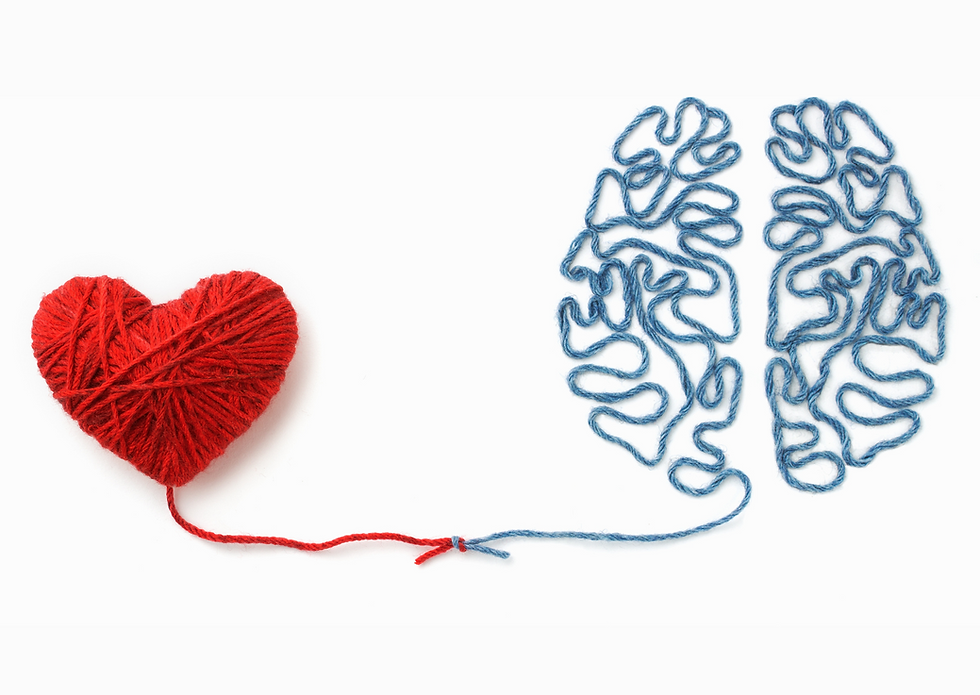A little toolkit for change - the secret to thriving in our crazy world!
- Mary Ely

- Aug 12, 2020
- 6 min read
Updated: Dec 18, 2021

Chameleons. Pretty funky looking animals and brilliant at change! Instantly and instinctively changing the appearance of their skin when they sense a change in their environment. Their survival depends on it.
And so does ours, but in a slightly different way. If we want to thrive in our crazy world, we need to be able to deal with times of change and uncertainty and implement lasting change quickly and often.
Unfortunately, the way our human brains work means that change can be a bit tricky.
If you’ve ever
tried but failed to hit a new year’s resolution,
struggled to implement lasting business change,
or if you’ve been struggling to stay focused in this time of unprecedented change and uncertainty,
....then you’ll know what I mean.
So, here’s a little toolkit for a big topic. A combination of
The 6 implications of how our brain works on our ability to change and deal with change. If you’ve had issues with change, these might help you realise that what you’ve experienced is completely normal!
10 ways for working around them. What you could do differently to make change easier and more certain.

Times of change and uncertainty generally come with an element of fear. Fear of not being able to cope or being judged badly. Fear of failure or not being enough.
And our minds and bodies react in the same way as they would to the threat of an imminent attack by a wild animal.
Our fight, flight or freeze response is triggered and puts us in 'survival mode'.
Our stress hormones kick in and blood moves to the wrong part of our brain for logical thought. Our emotions take over and go wild. We don't feel right, our ability to take focused action drops, and so does our IQ. Staying in this mode for long periods can lead to mental and physical illness.
So what can you do?
Recognise survival mode and BREATHE
Learn to spot the signs that you’ve gone into survival mode. Difficulty focusing? Shallow breathing? Shoulder or neck tension? Feeling anxious? What is it for you?
When you notice, step away from what you're doing, say some soothing things to yourself, drop your shoulders and BREATHE DEEPLY for a few minutes. This’ll get the blood back to the right part of your brain so you can start to think more clearly about your situation.
Focus on the things you CAN control
Change and times of change often feel overwhelming. It’s easy for us to get caught in the trap of feeling the need to solve everything all at once.
When you feel yourself doing this, tell yourself to STOP, breathe, and bring your focus back to what you CAN control. Make a plan, prioritise what you will do and forget the rest!

Change means interrupting what we do easily and automatically. It takes effort and we register that as pain. Something to be avoided.
Two ways to tackle this one!
Maximise your motivation
Create enough emotional pull to make the effort required to change worthwhile.
Think of your goal and the impact of achieving it. What are all the things you'll gain or avoid?
Look at your list. Which make you feel the most motivated? Keep them handy and look at them often!
Break the change down to minimise effort
How can you structure the change to minimise the effort? Break it down into small, manageable steps.
Get the support you need to complete each step easily - for example, do some training, set up a support network, get a mentor, adviser or coach.

Our basic human need is security. We like familiar. We know what to do with it. It's comfortable.
We also have a need for variety, so we like some change but it has to be within our individual comfort level if we're going to embrace it.
Make change as comfortable as possible
How can you structure and think of your change so it feels like
A change that you've successfully made before,
Something you already do, or
Something that you're comfortable with?
Here's a couple of examples to show you what I mean
Like many others, I used to hate presenting and then I found myself in a job where it was unavoidable. I had to change, but how? I realised I was uncomfortable because I was focusing on what people would think of me. So I decided to switch my focus. I focused on the fact that I had something really important that my audience needed to hear. I could easily be passionate about that! This made presenting not only comfortable but something I wanted to do.
Most people brush their teeth in the morning. So, if you want to develop a morning habit like doing some exercise, tell yourself it's like cleaning your teeth. It's just something you do in the morning.
And, if you decide to 'step out of your comfort zone', make sure you have the right support to make that OK. Do it in a way or in a place that you can see it as 'a good learning experience' or 'an interesting experiment' (rather than something ever so slightly terrifying).

Personal change CAN happen in an instant, but normally you need to repeat a new pattern consistently until it becomes automatic. Adjusting things if necessary as you go.
Without enough repetition, our desire for 'familiar' pulls us back into our old ways.
This explains why skills you’ve learnt can fade after you’ve been on a training course. If you don’t consciously practice them and notice what you’re doing, you’ll eventually stop trying and your course will have been a wasted investment.
Build in feedback and repeat consistently
How will you ensure you keep going? What challenges may get in your way? Make a backup plan for that.
How and when will you get feedback on how you are doing? How will you incorporate it?
If you commit to doing something every day and you don’t manage that, don’t give yourself a hard time and don't give up. Some days are harder than others. Just have another go tomorrow. 21 times is usually enough to set a new pattern.

All change requires resilience. The ability to bounce back and have another go when things don't go according to plan
This requires energy, so ...
Self-care is a NECESSITY
You need to make time to do things that restore your energy, feed your soul and make you happy.
What's on that list for you? What can you do to make sure you do those things regularly?

Our minds are like massive computers, processing all of the data from what’s going on and coming up with a result. The processing we do is based on everything we have learnt up to this moment in time. Everything is judged against that and we decide what is good, bad, easy, hard, scary etc. Whatever we decide shows up in what we say to ourselves about the situation, how we feel and what happens to our bodies. And that impacts what we do.
For example.
Most of us have learnt that having money is better than not having enough. So when we think about winning the lottery we process it as a 'good' thing. It would make us happy and we would go out and buy what we've been dreaming of. And we can experience all of that just by thinking about winning the lottery.
When we think about being attacked by a wild animal, we've all watched enough nature programmes to know that wouldn't end well. We label that a threat, so we would do what we could to avoid that situation. And as described above, just perceiving a threat will cause our bodies to go into 'survival mode'.
What does this mean for change?
Change the situation
Fairly obvious this one, but if you can influence the situation you're experiencing, you'll have a different reaction.
For example, if watching the news at the moment makes you feel worried or depressed, stop watching it for a few days. Give yourself an 'ignorance is bliss break' and enjoy a different feeling for a while.
This can also be a useful tactic for managing stress. Think about what is causing you to feel stressed. Brainstorm options for what you could do to make the situation less stressful.
Challenge the meaning and what you say to yourself
Begin to notice what you’re thinking and what you’re saying to yourself about your situation and challenge that if it's not helpful.
What else could you say to yourself that would be more useful?
Try toning down your language. 'A bit of a challenge' will keep you calmer than 'It's going to be a total nightmare!
What assumptions are you making? What if they weren't true and something more positive was? How would you feel and what would you do differently now? Experiment choosing a more positive assumption.
What would you advise a friend if they were thinking the same as you?
What else can you think of, to work around any negative self-talk or persuade it to stop?
Change the processing in your head
You may not be aware of all of the processing rules you have in your head and they may be working against you. Changing your internal processing is generally transformational. It gives you a whole new perspective that makes life much easier and more enjoyable.
Coaching or therapy techniques can help you uncover and change your internal processing or can help you find new workarounds.
All of these ideas can be applied to both personal and business change so give it a go and unlock your individual or collective potential.
Make change simple, manageable and as comfortable as possible!
If you'd like to explore how I could help you navigate business or personal change, book a free call with me using this booking page
And if you want to make sure you see all of my blogs, sign up here for my monthly email.






Comments